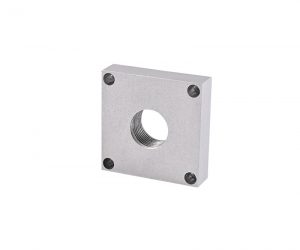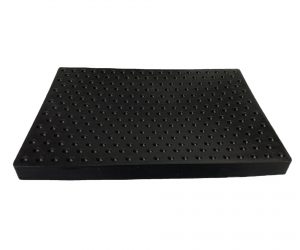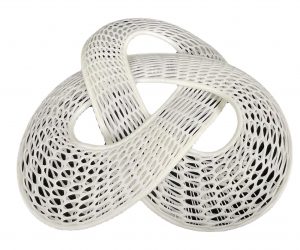The intricate dance of polyvinyl chloride (PVC) pellets within the injection molding paradigm presents a compelling case study in material science and manufacturing process optimization. This exploration delves beyond a superficial understanding, examining the inherent complexities and nuanced properties that dictate the efficacy and versatility of PVC in this high-volume production method.
Firstly, let us deconstruct the seemingly simple PVC pellet. These are not merely inert particles; rather, they represent a meticulously engineered microcosm of polyvinyl chloride resin, subjected to rigorous processing to achieve precise rheological characteristics. Their flowability, a critical parameter in injection molding, is not an inherent property but a carefully cultivated attribute, influenced by factors ranging from particle size distribution and morphology to the subtle nuances of resin formulation. The seemingly homogenous pellet is, in reality, a complex matrix of molecular interactions, influencing its behavior under thermal and mechanical stress.
The injection molding process itself transcends a simplistic description of heating, injection, and cooling. The precise temperature profile, a critical variable, must be meticulously controlled to avoid degradation of the PVC polymer chain, a phenomenon leading to compromised mechanical properties and potential catastrophic failure. The injection pressure, a dynamic force, must be calibrated to overcome viscous resistance and ensure complete mold filling, while simultaneously minimizing internal stresses that could lead to warping or cracking. The cooling phase, often overlooked, is crucial in determining the final crystallinity and hence the ultimate mechanical performance of the molded part. The seemingly straightforward act of ejecting the finished product from the mold demands careful consideration to prevent damage and ensure dimensional accuracy.
The advantages of PVC in injection molding extend beyond the readily apparent. While its ease of processing and the resultant high throughput are undeniable, the true value lies in its tailored properties. The inherent strength, coupled with its remarkable resistance to corrosion and abrasion, renders PVC suitable for applications demanding exceptional durability and longevity. Furthermore, its dielectric properties and inherent flame retardancy, often enhanced through additive modification, position PVC as a material of choice in electrically demanding and safety-critical applications.
The versatility of PVC transcends mere categorization. The assertion that it's "widely used" undersells its pervasive influence across diverse sectors. From the ubiquitous pipes and fittings of infrastructure to the intricate components of medical devices and the sophisticated geometries of automotive parts, PVC's adaptability is a testament to its inherent properties and the ingenuity of its application. Its role extends beyond the readily visible, permeating countless products in a silent, yet profoundly impactful, manner. The future of PVC in injection molding is not merely a continuation of existing trends, but rather a dynamic evolution driven by ongoing material science advancements and the persistent demand for innovative solutions.
The Profound and Perplexing World of PVC Pellets in Injection Molding: A Deep Dive
The seemingly mundane PVC pellet, a ubiquitous component of the plastics industry, belies a complexity that warrants a far more nuanced examination than typically afforded. This exploration delves into the intricate properties, unforeseen applications, and inherent unpredictability associated with PVC pellets within the demanding realm of injection molding. We will navigate the labyrinthine processes, unraveling the subtleties that distinguish successful implementations from catastrophic failures.
Deconstructing the Injection Molding Paradigm: Beyond the Obvious
Injection molding, a cornerstone of modern manufacturing, transcends the simplistic notion of merely injecting molten plastic into a mold. It is a delicate dance between material science, engineering precision, and the often-capricious behavior of polymers under extreme conditions. The choice of plastic pellet, therefore, is not a trivial decision; it dictates the very fate of the final product. PVC pellets, with their inherent chemical intricacies and susceptibility to degradation under specific conditions, present a unique set of challenges and opportunities.
PVC Pellets: A Microcosm of Complexity
The seemingly innocuous PVC pellet is far from homogeneous. Its composition, a carefully orchestrated blend of polyvinyl chloride resin and a panoply of additives, dictates its final properties. These additives, often proprietary blends guarded by manufacturers, introduce an element of unpredictability. Slight variations in additive concentration can lead to dramatic shifts in the final product's mechanical properties, thermal stability, and even its susceptibility to degradation over time. This inherent variability demands a profound understanding of the specific pellet formulation to ensure consistent and reliable results.
Beyond the Expected: Unveiling the Unforeseen Advantages and Applications
While the commonly cited advantages of PVC pellets – chemical resistance, impact strength, and versatility – hold true, a deeper investigation reveals a more nuanced reality. The chemical resistance, for instance, is not absolute; specific chemical interactions can lead to unexpected degradation. Similarly, impact strength is heavily dependent on the pellet formulation and processing parameters. The "versatility" of PVC is a double-edged sword, enabling a vast array of applications but simultaneously increasing the risk of unforeseen complications if not meticulously managed.
The applications of PVC pellets extend far beyond the commonplace. While construction, consumer goods, automotive, and medical devices represent significant sectors, the true potential lies in niche applications where the specific properties of a carefully tailored PVC formulation can provide a crucial advantage. Consider, for example, the use of specialized PVC formulations in high-performance aerospace components or in demanding applications within the rapidly evolving field of microfluidics.
Navigating the Uncertainties: A Call for Precision and Foresight
The use of PVC pellets in injection molding is not a straightforward process. It demands a deep understanding of material science, process engineering, and a healthy dose of predictive modeling. The inherent unpredictability necessitates rigorous quality control measures, meticulous process optimization, and a thorough understanding of the potential pitfalls. Only through a comprehensive approach can the full potential of PVC pellets be harnessed, transforming them from simple raw materials into the building blocks of innovative and reliable products. The future of PVC in injection molding lies not in simplistic applications, but in the mastery of its complexities.
Conclusión
PVC pellets are like the Swiss Army knife of materials in the injection molding biz. They’ve got this awesome ability to resist chemicals, pack a punch when it comes to toughness, and they’re pretty much good for making all sorts of plastic stuff. Whether you’re building houses, churning out gadgets people love, crafting cars, or even making medical gear, these little pellets bring the goods on reliability and saving those pennies. It’s all about tapping into what makes them such a game-changer.
5. FAQs
5.1 What plastic pellets are used in injection molding?
Injection molding, a high-throughput manufacturing process, relies on the precise melting and injection of thermoplastic pellets into meticulously crafted molds. The resulting solidified forms, ranging from the trivial to the intricately engineered, are limited only by the designer's imagination and the material's inherent properties. While commodity resins like polypropylene (PP), polyethylene (PE), and polystyrene (PS) dominate the low-cost, high-volume sector, the demands of specialized applications necessitate the deployment of engineering resins. These high-performance materials, including acrylonitrile butadiene styrene (ABS), polyethylene terephthalate (PET), and polycarbonate (PC), offer superior mechanical, thermal, and chemical resistance, enabling the creation of durable components for demanding environments. The selection of the optimal resin is a complex interplay of cost, performance requirements, and desired product lifespan, often involving sophisticated simulations and material characterization techniques. The process itself is a finely tuned dance between temperature, pressure, and injection speed, requiring precise control to avoid defects and ensure consistent product quality.
5.2 What are PVC pellets?
Polyvinyl chloride (PVC) pellets, granular precursors to a vast array of products, represent a fascinating paradox. Their versatility, cost-effectiveness, and ease of processing have cemented their position as a cornerstone of numerous industries. However, this widespread adoption is inextricably linked to significant environmental and health concerns stemming from the inherent toxicity of certain additives and the challenges associated with PVC's end-of-life management. The production of PVC pellets involves a multi-stage process, beginning with the polymerization of vinyl chloride monomers and culminating in the extrusion and pelletization of the resulting resin. The precise formulation of the pellet, involving the careful selection and incorporation of plasticizers, stabilizers, and fillers, dictates the final product's properties. This allows for a remarkable degree of customization, tailoring the material's flexibility, rigidity, and chemical resistance to meet specific application needs. From ubiquitous plumbing pipes and flexible films to sophisticated medical devices, PVC pellets' pervasive presence underscores both their utility and the urgent need for sustainable alternatives and responsible lifecycle management.
5.3 What are plastic pellets used for?
The applications of plastic pellets extend far beyond the confines of injection molding. Their utility as a raw material spans a vast spectrum of industries, from the creation of everyday consumer goods to the manufacture of critical components for advanced technologies. However, this widespread use has resulted in a global crisis of plastic pollution. The escape of plastic pellets into the environment, often referred to as "nurdles," presents a significant threat to aquatic ecosystems and wildlife. These seemingly insignificant particles act as vectors for persistent organic pollutants, bioaccumulating within the food chain and ultimately posing potential risks to human health. The challenge lies not only in mitigating the environmental impact of existing practices but also in fostering the development and adoption of truly sustainable alternatives, necessitating a paradigm shift in material selection and waste management strategies. The future of plastic pellet utilization hinges on a delicate balance between technological advancement, environmental responsibility, and the imperative for a circular economy.
PVC Pellets for Injection Molding: Enhancing Quality and Versatility
In injection molding, PVC pellets offer a myriad of benefits that enhance both the quality and flexibility of the end products. examining their key properties, formulation specifics, and customization potential. By understanding these elements, you can achieve superior outcomes in your injection molding projects.
Explore the realm of PVC pellets specifically designed for injection molding and uncover the unique attributes that set PVC apart. This exploration delves into the distinctive properties, additives, and extensive color palette available to enhance your plastic product offerings. Gain insights into the meticulous manufacturing processes employed to ensure that your plastic products excel in quality
In the realm of injection molding, polyvinPVC) pellets stand as an indispensable component. Their incorporation into this manufacturing process offers a myriad of advantages, chief among them being the enhancement of stability and uniformity within the produced items. This, in turn, facilitates a more efficient and seamless production workflow. Furthermore, PVC pellets endow designers with greater flexibility in creating intricate designs while also contributing positively towards environmental sustainability efforts. Consequently, for those engaged in injection molding operations, the inclusion of PVC resin pellets is not merely advantageous but practically essential.


